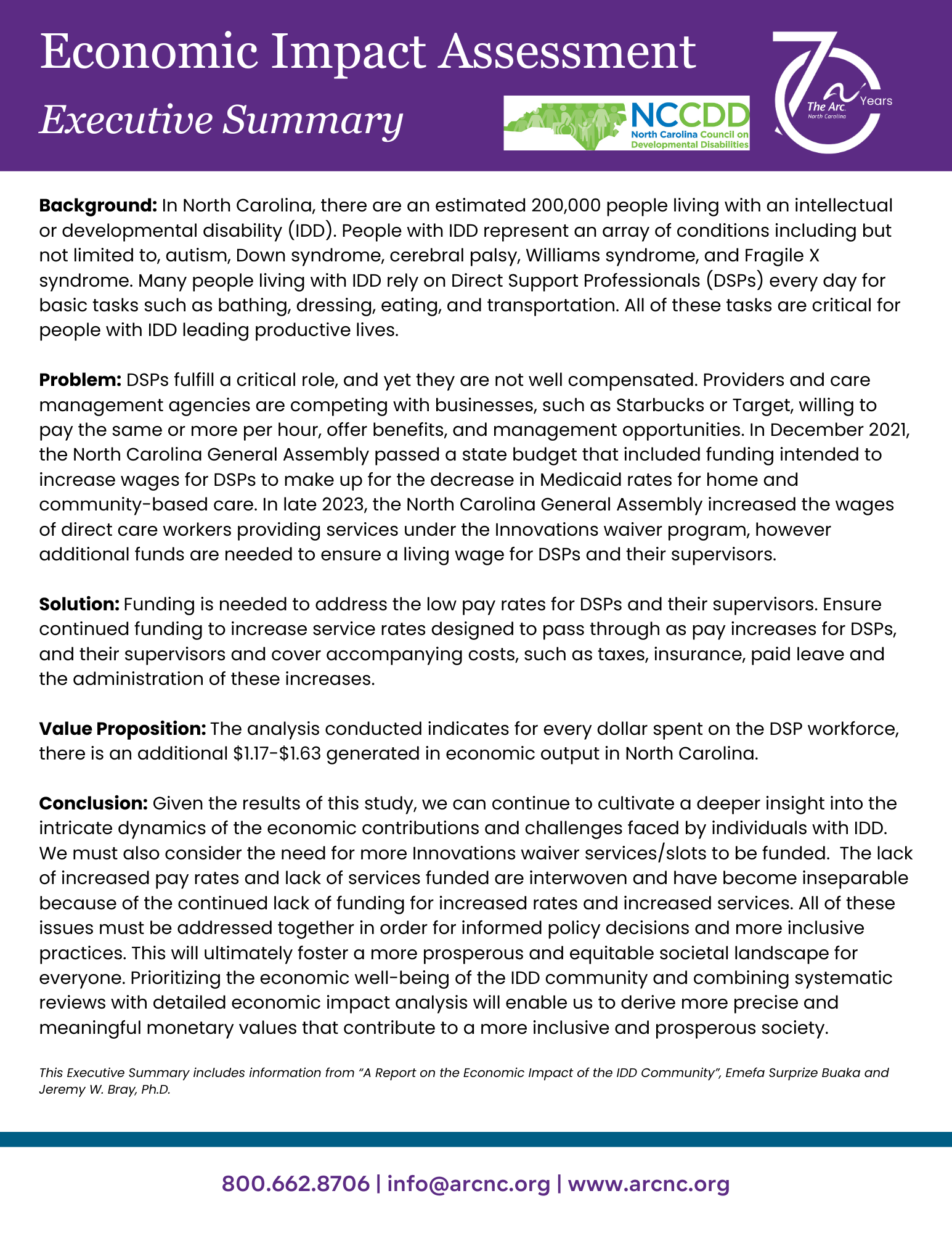Press Releases
New Study Highlights the Need for Changes to Retain Direct Support Professionals
Lack of living wage and career path contribute to high turnover rates
March 20, 2024 (RALEIGH, N.C.) - Today, the North Carolina Council on Developmental Disabilities and The Arc of North Carolina released a study, A Report on the Economic Impact of the IDD Community, examining the effects of the limited number of Direct Support Professionals (DSPs) and how it impacts people with intellectual and developmental disabilities (IDD) and their families.
 “This study shows the impact that DSPs make in our community. Without them, many people with disabilities and their families would be isolated and unable to live in the community of their choice,” said John Nash, Executive Director, The Arc of North Carolina.
“This study shows the impact that DSPs make in our community. Without them, many people with disabilities and their families would be isolated and unable to live in the community of their choice,” said John Nash, Executive Director, The Arc of North Carolina.
Many people living with IDD rely on DSPs every day for basic tasks such as bathing, dressing, eating, and transportation. All these tasks are critical for people with IDD leading productive lives. DSPs fulfill a critical role, and yet they are not well compensated. Providers and care management agencies are competing with businesses, such as Starbucks or Target, willing to pay the same or more per hour, offer benefits, and management opportunities.
“Exponential good is what happens when state leaders fund Direct Support Professionals to aid people with disabilities to live and work in their local communities,” said Talley Wells, Executive Director of the North Carolina Council on Developmental Disabilities. “The funding not only pays for caregivers to support people with disabilities with critical daily activities but each dollar the state invests is multiplied and spent in the local communities. It is one of the best investments North Carolina can make in its people.”
The study was created in collaboration with Dr. Jeremy Bray and Emefa Buaka, a team from The University of North Carolina at Greensboro. It highlights a greater need for solutions to multiple problems including the lack of increased pay rates, the lack of services funded, a limited career path for DSPs, and the need for more NC Innovations Waiver slots to be funded.
Read the full study: https://www.arcnc.org/blog
# # #
For more information:
Holly Watkins, Communications and Public Policy Manager
The Arc of North Carolina
919-782-4632 or [email protected]
Devika Rao, Media Relations
NCCDD
770-727-0922 or [email protected]
About The Arc of North Carolina: The Arc of North Carolina is committed to securing for all people with intellectual and developmental disabilities the opportunity to choose and realize their goals of where and how they learn, live, work and play.
About the North Carolina Council on Developmental Disabilities: Through advocacy, capacity building and systems change, the North Carolina Council on Developmental Disabilities improves the opportunities and lives of North Carolinians with intellectual and developmental disabilities (I/DD) and their families.